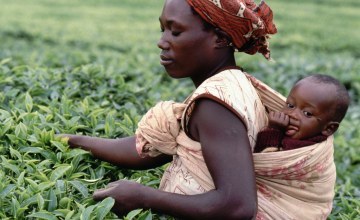The tea industry is on the brink of collapse, Kenya National Chamber of Commerce and Industry has warned. This follows the introduction of the new Ad Valorem levy by the Agriculture minister gazetted in January which will see tea charged an additional one per cent of the customs value at the point of export and import.
The new charges will lead to an increase from Sh0.46 to Sh2.40 levy per kilogramme of tea.
The new tax also comes along with the Kenya Revenue Authority's plans to introduce additional stringent regulations on non-Kenyan tea which stakeholders say will constrict tea movement in the country. The move by KRA may lead to traders looking for alternative markets.
KNCCI Mombasa county chairman James Mureu said the new measures will kill one of Kenya's top foreign exchange earners. He said tea, which is a lucrative cash crop that has sustained the country for decades, is now facing extinction like coffee which was killed by poor planning and ignorance by the government. This comes as farmers issued a warning of dire consequences should the government fail to change its stand on the new tax levied on the crop.
"The new levy and the KRA proposal for handling of non-Kenyan teas is a very retrogressive step of very harsh controls that if implemented will kill tea production and trade in the country. The Mombasa tea industry is already facing competition from Dubai," said Mureu.
He called on the government, KRA and the Kenya Tea Board to come out clear on the matter to avoid loss of tea trade and employment opportunities in the industry.
"Losing market means we lose jobs that come along with the tea industry. Farmers will also give up on the cash crop. The country needs to review this issue and consult on matters which could easily deny us from achieving vision 2030," Mureu said.
The chamber also warned on the plans to take tea auctioning to Nairobi which will lead to double handling of the product .This will have the product transported back to Mombasa for exporting.
Mombasa Provides an international platform for tea trading in the world with two auctions a week.
By Martin Mwita
Tea pickers in Kenya (file photo). (Photo Courtesy David Blumenkrantz)
Via All Africa



